 W
WAppleWin is an open source software emulator for running Apple II programs in Microsoft Windows. AppleWin was originally written by Mike O'Brien in 1994; O'Brien himself announced an early version of the emulator in April 1995 just before the release of Windows 95. Development of AppleWin passed to Oliver Schmidt and is now maintained by Tom Charlesworth. AppleWin originally required a minimum Intel 486 CPU and is written in C++.
 W
WBasilisk II is an emulator which emulates Apple Macintosh computers based on the Motorola 68000 series. The software is cross-platform and can be used on a variety of operating systems.
 W
WBochs is a portable IA-32 and x86-64 IBM PC compatible emulator and debugger mostly written in C++ and distributed as free software under the GNU Lesser General Public License. It supports emulation of the processor(s), memory, disks, display, Ethernet, BIOS and common hardware peripherals of PCs.
 W
WCherryOS was a PowerPC G4 processor emulator for x86 Microsoft Windows platforms, which allowed various Apple Inc. programs to be operated on Windows XP. Announced and made available for pre-orders on October 12, 2004, it was developed by Maui X-Stream (MXS), a startup company based in Lahaina, Hawaii and a subsidiary of Paradise Television. The program encountered a number of launch difficulties its first year, including a poorly-reviewed soft launch in October 2004, wherein Wired Magazine argued that CherryOS used code grafted directly from PearPC, an older open-source emulator. Lead developer Arben Kryeziu subsequently stated that PearPC had provided the inspiration for CherryOS, but "not the work, not the architecture. With their architecture I'd never get the speed."
 W
WConEmu is a free and open-source tabbed terminal emulator for Windows. ConEmu presents multiple consoles and simple GUI applications as one customizable GUI window with tabs and a status bar. It also provides emulation for ANSI escape codes for color, bypassing the capabilities of the standard Windows Console Host to provide 256 and 24-bit color in Windows.
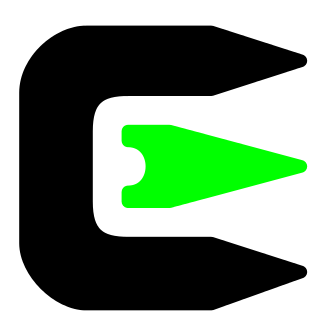 W
WCygwin is a POSIX-compatible programming and runtime environment that runs natively on Microsoft Windows. Under Cygwin, source code designed for Unix-like operating systems may be compiled with minimal modification and executed.
 W
WDolphin is a free and open-source video game console emulator for GameCube and Wii that runs on Windows, Linux, MacOS, and Android.
 W
WFCEUX is an open-source Nintendo Entertainment System and Family Computer Disk System emulator. It is a merger of various forks of FCE Ultra.
 W
WGNOME Boxes is an application of the GNOME Desktop Environment, used to access virtual systems. Boxes uses the QEMU, KVM, and libvirt virtualization technologies.
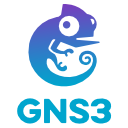 W
WGraphical Network Simulator-3 is a network software emulator first released in 2008. It allows the combination of virtual and real devices, used to simulate complex networks. It uses Dynamips emulation software to simulate Cisco IOS.
 W
WHatari is an open-source emulator of the Atari ST 16/32-bit computer system family. It emulates the Atari ST, Atari STe, Atari TT, and Atari Falcon computer series and some corresponding peripheral hardware like joysticks, mouse, midi, printer, serial and floppy and hard disks. It supports more graphics modes than the ST and does not require an original TOS image as it supports EmuTOS. The latest version has no reported issues with the ST/STe/TT applications emulation compatibility and also most of the ST/STe games and demos work without issues.
 W
WHercules is a computer emulator allowing software written for IBM mainframe computers and for plug compatible mainframes to run on other types of computer hardware, notably on low-cost personal computers. Development started in 1999 by Roger Bowler, a mainframe systems programmer.
 W
Whigan is a free emulator for multiple video game consoles, including the Super Nintendo Entertainment System. Originally called bsnes, the emulator is notable for attempting to emulate the original hardware as accurately as possible through low-level, cycle-accurate emulation and for the associated historical preservation efforts of the SNES platform.
 W
WKernel-based Virtual Machine (KVM) is a virtualization module in the Linux kernel that allows the kernel to function as a hypervisor. It was merged into the mainline Linux kernel in version 2.6.20, which was released on February 5, 2007. KVM requires a processor with hardware virtualization extensions, such as Intel VT or AMD-V. KVM has also been ported to other operating systems such as FreeBSD and illumos in the form of loadable kernel modules.
 W
WMednafen, formerly known as Nintencer, is an OpenGL and SDL multi-system free software wrapper that bundles various original and third-party emulation cores into a single package, and is driven by command-line input. It is distributed under the terms of the GPL-2.0-or-later license. Certain emulation cores of Mednafen have been ported to RetroArch/Libretro.
 W
WopenMSX is a free software emulator for the MSX architecture. It is available for multiple platforms, including Microsoft Windows and POSIX systems such as Linux
 W
WPCem is an IBM PC emulator for Windows and Linux that specializes in running old operating systems and software that are designed for IBM PC compatibles. Originally developed as an IBM PC XT emulator, it later added support for other IBM PC compatible computers as well.
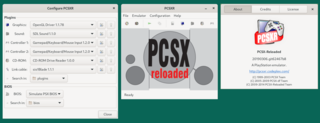 W
WPCSX is a free and open-source video game console emulator which allows software designed to be used with the Sony PlayStation to run on personal computers. Over the years, development changed hands several times with PCSX-Reloaded (PCSXR) now being the main version. As of 2021 the emulator seems to be no longer under active development. A newer fork of PCSX-Reloaded is PCSX-Redux.
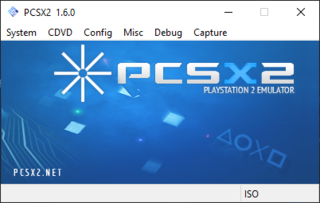 W
WPCSX2 is a free and open-source PlayStation 2 emulator for Windows, Linux, and macOS that supports a wide range of PlayStation 2 video games with a high level of compatibility and functionality. Although PCSX2 can closely mirror the original gameplay experience on the PlayStation 2, PCSX2 supports a number of improvements over gameplay on a traditional PlayStation 2, such as the ability to use custom resolutions up to 8192×8192, anti-aliasing, and texture filtering.
 W
WPPSSPP is a free and open-source PSP emulator for Windows, macOS, Linux, iOS, Android, Nintendo WiiU, Nintendo Switch, BlackBerry 10, MeeGo, Pandora, Xbox Series X, Xbox Series S, and Symbian with an increased focus on speed and portability. It was first released to the public on November 1, 2012, licensed under the GNU GPLv2 or later. The PPSSPP project was created by Henrik Rydgård, one of the co-founders of the Dolphin emulator.
 W
WProject64 is a free and open-source software Nintendo 64 emulator written in the programming languages C and C++ for Microsoft Windows. This software uses a plug-in system allowing third-party groups to use their own plug-ins to implement specific components. Project64 can play Nintendo 64 games on a computer reading ROM images, either dumped from the read-only memory of a Nintendo 64 ROM cartridge or created directly on the computer as homebrew.
 W
WPvPGN is a free and open source software project offering emulation of various gaming network servers. It is published under the GPL and based upon bnetd. PvPGN was a recommended project of the month in the August 2005 issue of Linux+ magazine.
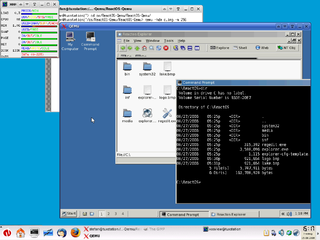 W
WQEMU is a free and open-source emulator and virtualizer that can perform hardware virtualization.
 W
WRPCS3 is a free and open-source in-development video game console emulator and debugger for the Sony PlayStation 3. The emulator currently runs on Windows, Linux and FreeBSD operating systems, allowing PlayStation 3 games and software to be played and debugged on a personal computer. It is being developed in the C++ programming language targeting x86-64 CPUs and features OpenGL and Vulkan as its back-end renderers.
 W
WRuffle is a Flash Player emulator for SWF files. It is currently under open source development on GitHub.
 W
WSheepShaver is an open-source PowerPC Apple Macintosh emulator originally designed for BeOS and Linux. The name is a play on ShapeShifter, a Macintosh II emulator for AmigaOS, which is in turn not to be confused with a third-party preference pane for Mac OS X with the same name. The ShapeShifter and SheepShaver projects were originally conceived and programmed by Christian Bauer. However, currently, the main developer behind SheepShaver is Gwenolé Beauchesne.
 W
WStella is an emulator of the Atari 2600 game console, and takes its name from the console's codename. It is open-source, and runs on most major modern platforms including Windows, Mac OS X, and Linux. Stella was originally written in 1996 by Bradford W. Mott, and is now maintained by Stephen Anthony.
 W
WUAE is a computer emulator which emulates the hardware of Commodore International's Amiga range of computers. Released under the GNU General Public License, UAE is free software.
 W
WThe software program VICE, standing for VersatIle Commodore Emulator, is a free and cross platform emulator for Commodore's 8-bit computers. It runs on Linux, Amiga, Unix, MS-DOS, Win32, Mac OS X, OS/2, RISC OS, QNX, GP2X, Pandora (console), Dingoo A320, Syllable, and BeOS host machines. VICE is free software, released under the GNU General Public Licence.
 W
WOracle VM VirtualBox is a free and open-source hosted hypervisor for x86 virtualization, developed by Oracle Corporation. Created by Innotek, it was acquired by Sun Microsystems in 2008, which was in turn acquired by Oracle in 2010.
 W
WYuzu is a free and open-source emulator of the Nintendo Switch. Yuzu was announced to be in development on January 14, 2018, 10 months after the release of the Nintendo Switch. It is developed in C++.
 W
WZSNES is a free software Super Nintendo Entertainment System emulator written mostly in x86 assembly with official ports for Linux, DOS, Windows, and unofficial ports for Xbox and macOS.